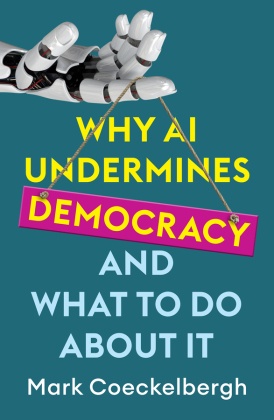Why AI Undermines Democracy and What To Do About It
| Verlag | Wiley & Sons |
| Auflage | 2024 |
| Seiten | 144 |
| Format | 14,0 x 1,5 x 22,0 cm |
| Gewicht | 218 g |
| Artikeltyp | Englisches Buch |
| EAN | 9781509560936 |
| Bestell-Nr | 50956093UA |
Across the world, AI is used as a tool for political manipulation and totalitarian repression. Stories about AI are often stories of polarization, discrimination, surveillance, and oppression. Is democracy in danger? And can we do anything about it?
In this compelling and balanced book, Mark Coeckelbergh reveals the key risks posed by AI for democracy. He argues that AI, as currently used and developed, undermines fundamental principles on which liberal democracies are founded, such as freedom and equality. How can we make democracy more resilient in the face of AI? And, more positively, what can AI do for democracy? Coeckelbergh advocates not only for more democratic technologies, but also for new political institutions and a renewal of education to ensure that AI promotes, rather than hinders, the common good for the twenty-first century.
Why AI Undermines Democracy and What to Do About It is illuminating reading for anyone who is concerned about the fate of demo cracy.
Inhaltsverzeichnis:
Acknowledgments
Preface
1 Introduction
2 A not so democratic history
3 What AI, what democracy?
4 How AI undermines the basic principles of democracy
5 How AI erodes knowledge and trust
6 Strengthening democracy and democratising AI
7 AI for democracy and a new Renaissance
8 The common good and communication
Notes
References
Index
Rezension:
"An essential read at this watershed moment. Coeckelbergh skilfully shows how the erosion of democratic values is extremely dangerous for us all. Enlightening, thought-provoking, and passionate."
Ivana Bartoletti, Global Chief Privacy Officer at Wipro, Visiting Fellow at Virginia Tech, and founder of the Women Leading in AI network
"Coeckelbergh masterfully shows why the present trajectory of AI is bad for humanity, but also how we can nudge it onto a more democratic course."
Wendell Wallach, Carnegie Council for Ethics in International Affairs

